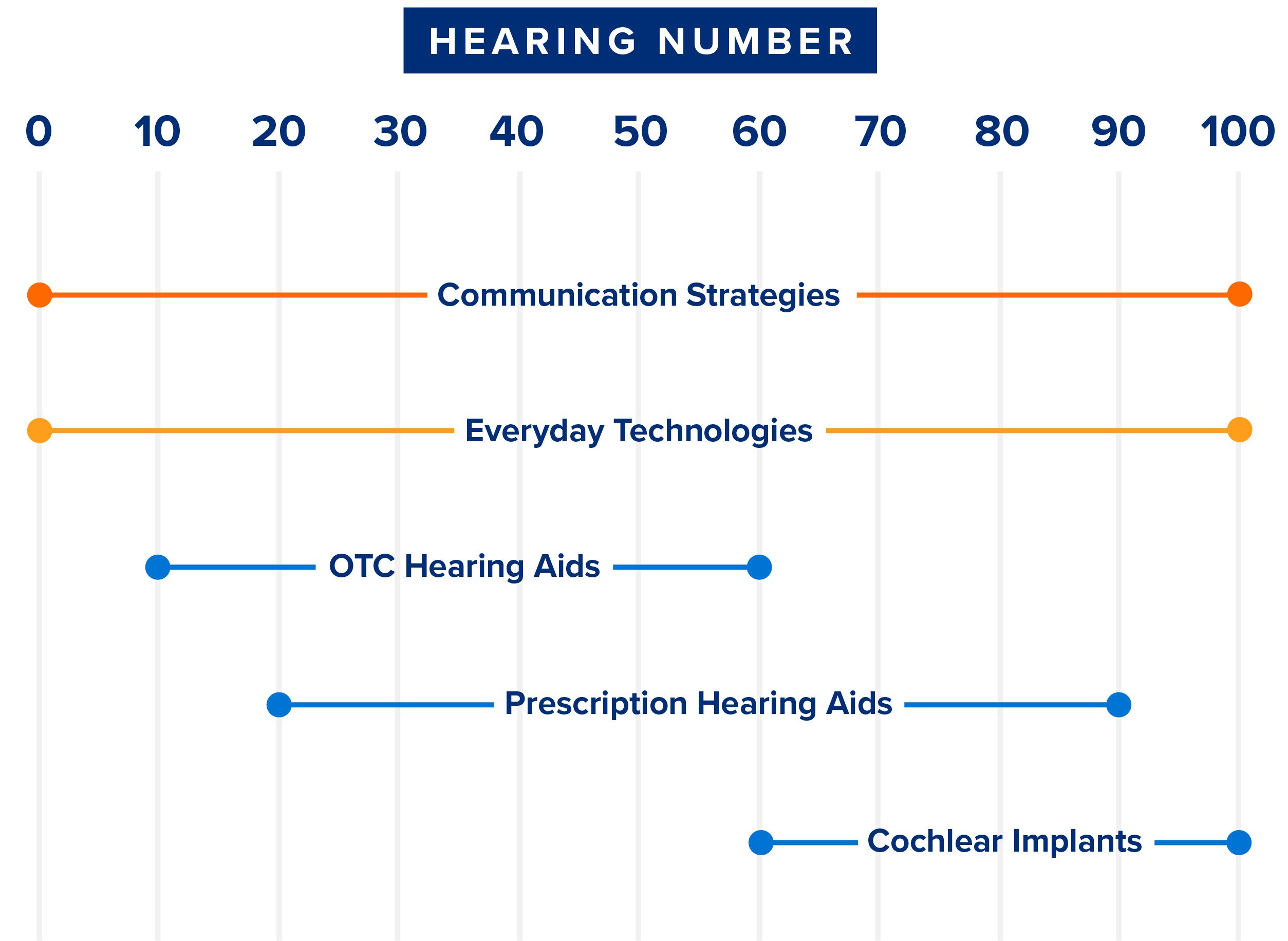Using the Hearing Number
What does my Hearing Number tell me about my hearing?
Your Hearing Number tells you the softest speech sound you can hear.


Your Hearing Number will change over time
That is right—and it’s not just you. Everybody’s hearing changes over time because the parts of the inner ear that detect sound wear out as you get older. And, as your hearing changes, your Hearing Number will increase.
You can use your Hearing Number to understand how your hearing changes over time. This helps you know when to use communication strategies or technologies to help you hear better.
Usually, the higher your Hearing Number is, the more communication strategies and technologies you may need. Keep reading to learn some of these helpful strategies.
Your Hearing Number Increases as You Get Older
How do I use my Hearing Number to help me improve my hearing and communication?
Your Hearing Number indicates how well you can hear speech sounds. If you do not know your Hearing Number, you might not even realize that you are missing some sounds. If people’s voices sound garbled or unclear, it may be because of your hearing.
How well you can communicate with others depends on your Hearing Number and other factors, such as:
- Your listening environment
- How familiar you are with the speaker
- Your brain’s ability to make sense of the sounds you are hearing
Hearing strategies based on your Hearing Number

Communication Strategies
Get close and face-to-face
Be close to the person you want to hear—about an arm’s length is ideal. Being able to see the face of the person who is speaking lets you read lip movements and facial expressions, which can help your brain decode incoming sounds.
Summarize and repeat
Didn’t understand what was said? Summarize what you did hear and ask the speaker to clarify. For example, “I heard you say something about dinner, but missed the rest.” This can be more helpful than asking “huh?” or “what?”
Avoid rooms with background noise and reverberation
The sound quality of what you are trying to hear—whether it’s a friend’s voice or the dialogue from a movie—will be better without other competing sounds. Turn down the TV, music, or fan, and find a space that has soft surfaces, like a carpet and pillows, which can help muffle noisy echoes.
Everyday Technologies
Turn on closed captioning
Using captioning or subtitles while watching TV or movies makes it easier to understand what is being said. Your brain won’t have to concentrate as hard to catch the dialogue.
Make phone calls over the internet
Technologies that allow you to make calls over the internet, such as Skype, Google Voice, WhatsApp, and FaceTime, have better sound quality than regular phone calls. This can make it easier to understand what is said.
Customize Audio Output on Smartphones
Many smartphone apps can help you change the sound on your smartphone so that it is easier to hear phone calls and listen to music. You can also customize certain Bluetooth headphones that connect to smartphones, tablets, and televisions so you can hear better.
Hearing Technologies
Over-the-counter, or OTC, Hearing Aids
OTC hearing aids are generally appropriate for adults with Hearing Numbers between 10 and 60. They can be purchased without seeing a hearing care professional, such as an audiologist or hearing aid specialist.
Prescription Hearing Aids
Prescription hearing aids are for people with all levels of hearing loss. They are available through a hearing care professional who will assess your hearing needs and guide you in using these technologies and other strategies.
Cochlear Implants
Cochlear implants are for individuals with severe levels of hearing loss who do not benefit enough from a hearing aid. A cochlear implant converts sounds into electrical signals that are sent to the brain. Getting a cochlear implant involves an outpatient surgery by an otolaryngologist, or ENT.